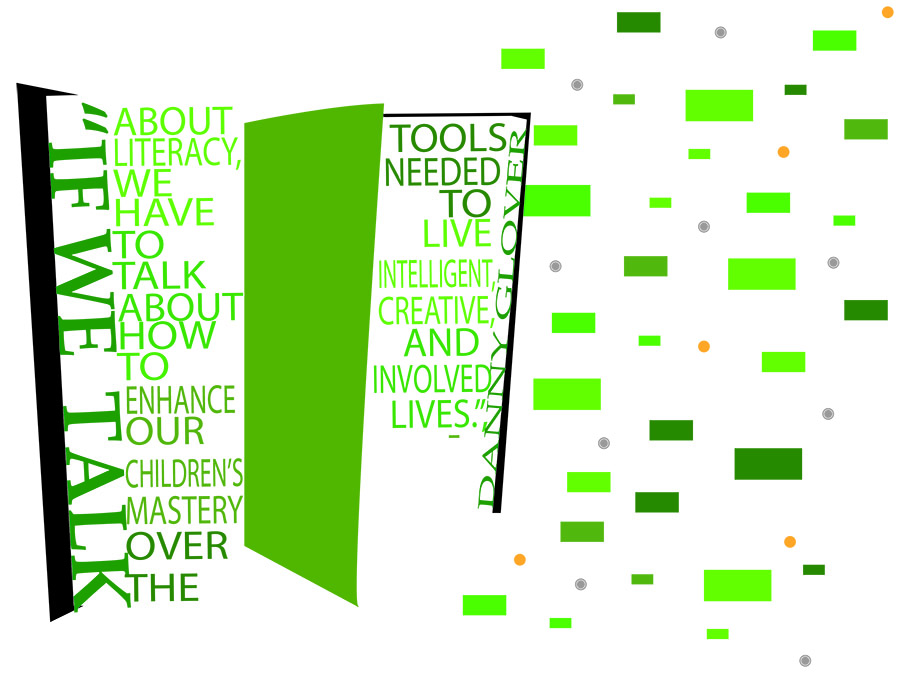It pays to read, support literacy
JASMINE GASCAR
THE SIGNAL
ProLiteracy, an international non-profit organization that promotes adult literacy learning, states on its website (proliteracy.org) that 63 million Americans cannot read or understand a basic newspaper.
Literacy Partners Inc., a nationally accredited adult education program, reports on its website (literacypartners.org) that low literacy rates account for 43 percent of impoverished Americans and 65 percent of prison inmates.
The University of Houston-Clear Lake School of Education hosted the Texas Association for the Improvement of Reading (TAIR) and the UHCL Student Reading Council’s annual fall literacy conference Oct. 19.
The Saturday morning workshop featured guest speaker Debbie Silver, veteran educator, educational speaker, staff development instructor and author.
The annual fall TAIR conference provided teachers and teacher candidates the opportunity for professional development by demonstrating fun and innovative teaching methods to keep students engaged and teachers motivated.
Silver emphasized the importance of the role played by teachers in students’ lives and offered teaching styles that could prevent students from giving up on education, especially for those children who lack support from the adult role models at home.
“Sometimes, parents are the ones that say, ‘I didn’t make it to the seventh grade, look at me!’” Silver said. “So the students sometimes have had to fight the parents for an education because they see it as a ticket out. The problem is the instant gratification. The parents don’t learn to postpone gratification, they focus on the instant rewards such as making money now, rather than investing in an education.”
Kathy Matthew, associate dean for the School of Education, pointed out that sometimes the lack of parental support is due to the low literacy rates of the parents themselves.
“When you have children with low literacy rates, most of the time the problem is that the parents can’t help them,” Matthew said. “Often times, when the kids were struggling, the parents didn’t know they were struggling. The parents can’t help because they don’t know how to help, and because they don’t know when to help. They don’t know how to recognize the need for help. That is why teachers are so important.”
Donna Pendleton, conference participant and education major at UHCL, pointed out that low literacy is sometimes a characteristic passed down from generation to generation.
“A lot has to do with the background of students.” Pendleton said. “The parents don’t always value education because they didn’t have a chance to; they were always working. So then, the cycle repeats itself. I work full-time and I am a single mom and I go to school part-time. I know how hard it is to keep up with education, but at the same time, I know its importance.”
One challenge that educators face at the moment is keeping students engaged and motivated to finish school.
“What happens is that when they start off bad in elementary and middle school, they drop out of high school,” said conference participant Lucero Munoz-Raba, fourth-grade teacher for Clear Creek ISD and UHCL alumna. Munoz-Raba graduated from UHCL with a master’s degree in multicultural education.
The Texas Education Agency website (tea.state.tx.us) states that the number of dropouts in grades 7-12 increased by almost 6 percent for the 2011-12 school year compared to 2010-11. Additionally, the Literacy Partners Inc. website (literacypartners.org) states that many people who did not finish high school have basic or below basic literacy rates.
Low literacy and drop out rates have been linked to a portion of the prison population as well. The ProLiteracy website (proliteracy.org) shows that 26 percent of prison inmates had parents who had not completed high school and 37 percent had not finished high school themselves.
“The most important thing with adults is not to look at them as victims, but rather as participants,” Silver said. “It is what it is, so how do we get better? Stop playing the victim card and stop giving them excuses. The end. But if you take care of [low literacy] at the high-chair level, you don’t have to take care of it at the prison level.”
The Literacy Partners Inc. website suggests that literacy rates may have a societal impact in addition to an individual impact by reporting that for every dollar spent on adult literacy, society reaps $7.14 in return.
For more information on resources for free adult education programs in Houston, visit: www.houstontx.gov/education/adult/. For more information on Silver’s books and workshops, visit www.debbiesilver.com. For more information on UHCL’s School of Education student organizations, visit: http://prtl.uhcl.edu/portal/page/portal/SOE/STUDENTORG.



